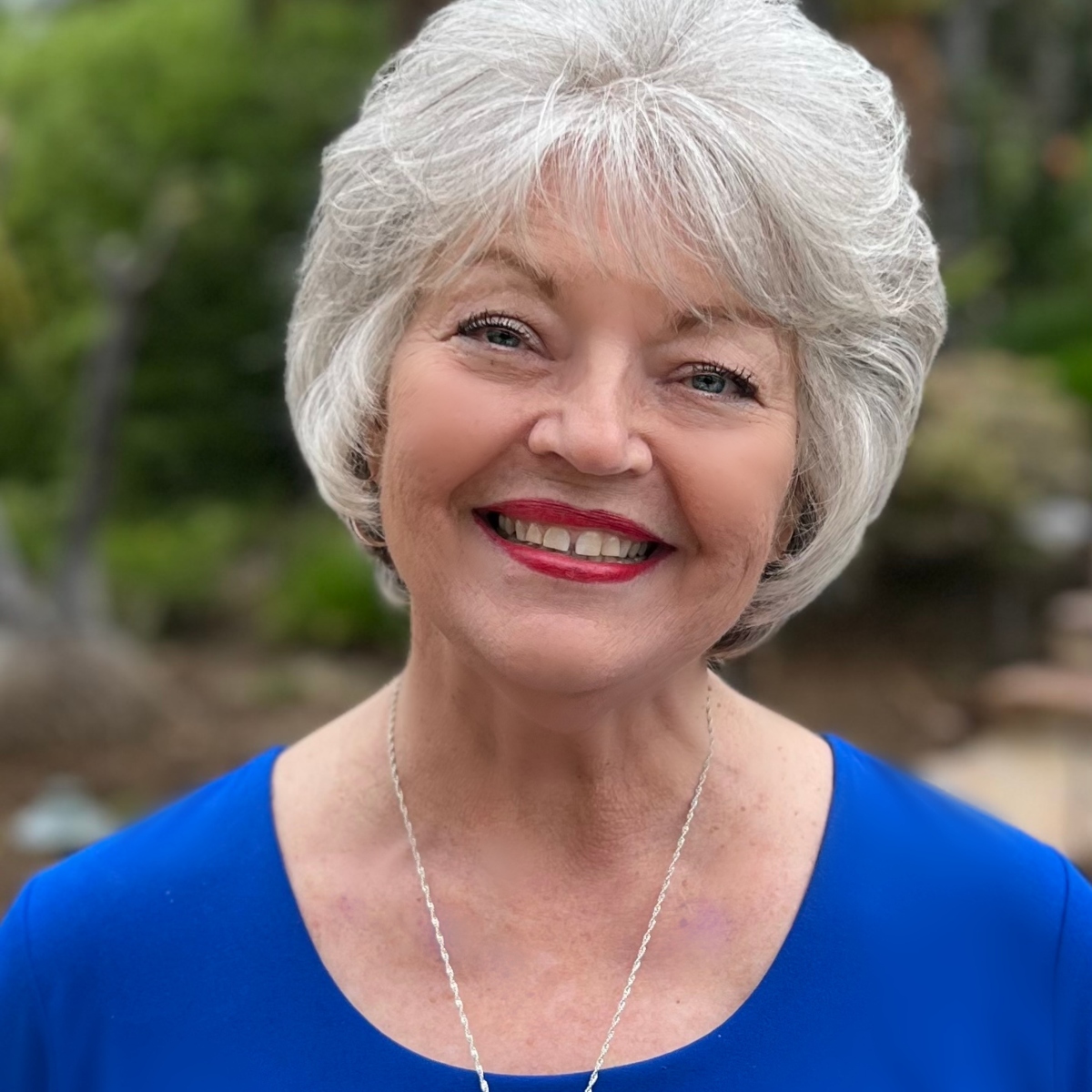What Can We Learn from Solomon’s Prayer for Wisdom?
Share

The story of Solomon’s prayer for wisdom is much more than a beautiful tale of one man’s desire for wisdom. It holds powerful lessons for believers today — especially in a culture where people continually make foolish choices.
Wisdom is valuable, to be sought for and highly esteemed; but having wisdom doesn’t automatically guarantee right attitudes and actions. Wisdom needs to be applied. The Bible gives us the conclusion of Solomon’s story; though gifted with wisdom, he sometimes failed to follow his own wise counsel.
Photo credit: ©Getty Images/BrianAJackson
What Is Solomon’s Prayer for Wisdom?

The Bible recounts that King Solomon’s prayer for wisdom was during a dream, detailed in 1 Kings 3:1-15 and a parallel passage, 2 Chronicles 1:7-12. At Gibeon, the Lord appeared to Solomon, saying, “Ask for whatever you want me to give you.” Imagine that for a moment. God gave Solomon a blank check.
Solomon showed that he already had some wisdom. He prayed, “give your servant a discerning heart to govern your people and to distinguish between right and wrong.”
Wisdom comes from looking to God and desiring to walk in His ways with understanding, prudence, and discretion (Proverbs 8:11-12; Psalm 25:4-5). Solomon understood that such wisdom is far greater than riches. Discernment is similar to wisdom, but pertains to good judgment. It’s the ability to choose between truth and error, right and wrong. Solomon would surely need discernment as Israel’s king.
Why Did Solomon Pray for Wisdom?
His prayer for “a discerning heart” was for two reasons. First, he needed discernment to govern the people well; for “who is able,” he asked, “to govern this great people of yours?” (verse 9). Solomon prized the welfare of his people, and he wanted to be a wise judge. Second, He wanted to distinguish between right and wrong. Sometimes it takes great discernment to know the difference.
Before making his request, Solomon was already showing his love for God in many ways, walking in the statutes of David his father. He offered words of praise and gratitude (vv. 6-7a), acknowledging God’s kindness to his father, King David. Though still a sinner and making foolish choices, David’s heart was Godward, and God honored his faithful, righteous heart. Solomon understood that God’s kindness continued in allowing him to succeed his father and reign in Jerusalem.
He also realized the great responsibility of leadership over the burgeoning population in Israel. In verse seven he admits, “I am only a little child and do not know how to carry out my duties.” Solomon was 30 years old, but he assumed a place of childlike humility before the Lord. In today’s terms, Solomon said, “I’m so inexperienced. I don’t know what I need to know. I need Your help!” Though he inherited a strong monarchy, Solomon no doubt felt overwhelmed in his new role as king.
Solomon called himself a “servant” before God among the chosen people. He reminded God that they were a “great people” — meaning great in number, “too numerous to count or number.” The importance and burden of that responsibility weighed heavily on Solomon’s heart. He feared the Lord, and he knew the fear of the Lord is the beginning of wisdom, so he also recognized where to go for more wisdom.
Photo credit: ©Getty Images/MangoStar_Studio
What Is the Context of Solomon’s Prayer?

In 1 Kings 3:1-2, we learn that Solomon, at the beginning of his reign, made an alliance with the Egyptian Pharaoh and married his daughter. He commissioned the building of his palace, the temple of the Lord, and the wall around Jerusalem. He also observed that the Jews were still sacrificing at the “high places” because the temple had not yet been built.
Verses three and four tell us Solomon “showed his love for the Lord” through obedience — “except that he offered sacrifices and burned incense on the high places.” This may be a note about Solomon’s worship at “high places” later in his life; because, although most high places were dedicated to idol worship, not all high places were pagan or idolatrous.
The Bible says that on his accession to kingship, Solomon met with all the kingdom of Israel’s leaders and offered one thousand burnt offerings on the altar at Gibeon, northwest of Jerusalem. 1 Chronicles 1:2-6 explains that this particular high place at Gibeon was “God’s tent of meeting” — the tabernacle established by Moses — and it was used until the Temple in Jerusalem was built.
Unfortunately, as Solomon married numerous foreign wives over time (1 Kings 11:3), he unwisely built idolatrous high places for them and worshipped with them. This idolatry eventually lead to the loss of his kingdom. But at this juncture in Solomon’s life — when he prayed for wisdom in his dream — he only loved and wanted to seek the God of Israel.
Photo credit: Unsplash/Aaron Burden
How Did God Respond to Solomon’s Prayer?

God was pleased with Solomon’s prayer. Solomon could have asked for long life, or wealth, or even the death of his enemies, but instead, he prayed for “discernment in administering justice.” We surmise from 1 Kings 3:16-28 and 4:29-30 that God granted this request. Solomon’s wisdom helped him make a difficult decision and administer justice in the case of two prostitutes — ruling against a lying mother and for the true mother. As “all Israel heard the verdict,” they held Solomon in awe. They realized their king had great wisdom from God to administer righteous judgment.
God was so delighted by Solomon’s prayer, He not only granted the king’s request, He also gave the monarch what he did not ask for — wealth and honor. These extra gifts from God would make Solomon famous. In his lifetime, he would have “no equal among kings” (1 Kings 3:12-13). People started talking about what he possessed and how he ruled. The Queen of Sheba heard these reports and decided to investigate Solomon for herself. Her testimony was that the king’s wealth and wisdom went far beyond the reports. King Solomon was “greater in riches and wisdom than all the other kings of the earth,” and “the whole world sought audience with Solomon to hear the wisdom God had put in his heart” (1 Kings 10:23-24).
Those two gifts from God were unconditional, but a third gift came with a condition. God said, “If you walk in obedience to me and keep my decrees and commands as David your father did, I will give you a long life” (1 Kings 3:14). The king immediately took that challenge to heart in the short term. He returned to Jerusalem from Gibeon, stood before the ark of the Lord’s covenant, and sacrificed burnt offerings and fellowship offerings there to the Lord (verse 15). His intent was to serve and obey God.
Yet his obedience was inconsistent over his 40-year reign. Solomon unwisely used his wealth in some cases. Worse, he was led astray as he ignored God’s warnings and intermarried with foreigners who were idol worshipers. 1 Kings 11:4, 6 says that as he aged, “his heart was not fully devoted to the LORD his God, as the heart of David his father had been. . . . [he] did evil in the eyes of the LORD; he did not follow the LORD completely, as David his father had done.”
Solomon forced God’s hand. For his sinful attitudes and disobedience, God said Solomon’s kingdom would be torn away — but not in his own lifetime out of respect for his father, David.
Photo credit: ©Getty Images/eggeeggjiew
What Can We Learn from This Bible Story and Prayer?

First, recognize the hand of God in your life. Solomon didn’t only recognize God’s goodness and faithfulness to His people, he made it personal. He praised God for His hand in David’s life and his own life, and he understood how much he needed God’s direction going forward in his reign. We too should recognize where God has worked in our past and appreciate how He is working in the present.
Second, never discount the value of wisdom. Think of it, Solomon could have asked his Creator for anything — wealth, various pleasures, good health, fame — but he made the smart choice. He oriented his heart heavenward, considered what might have lasting value, and asked for wisdom. Wisdom is perhaps the most valuable characteristic of leadership. David instilled this kind of thinking in his son’s life. Proverbs 4:3-5 is Solomon’s testimony to David’s fatherly influence and training. David told his son, “Get wisdom, get understanding: forget it not.” Good advice for everyone.
Third, ask for wisdom—but check your heart. Solomon asked for wisdom from a pure, humble heart. Sometimes people misinterpret John 15:7 as “whatever you want, ask, and it will be done for you.” But that’s not what the Scripture says. Jesus said, “If you remain in me and my words remain in you, ask whatever you wish, and it will be done for you.” This was the principle working in Solomon’s prayer when he asked for wisdom. Loving and worshipping God, Solomon unselfishly wanted to bring God honor by governing His people well. All prayer should come from a humble, surrendered heart.
Fourth, put knowledge in its proper perspective. It’s better to pray for wisdom than to focus on collecting facts or gaining more and more knowledge. Wisdom is the application of knowledge to daily choices. James 1:5-6 tells us God will generously grant wisdom to all those who ask for it, in unwavering faith. Ephesians 1:17 encourages God’s people to ask God for “the spirit of wisdom” so they will “know him better.” Knowledge is good; wisdom is better.
Fifth, seek God’s glory in your quest for wisdom. As Solomon embraced humility rather than stoking his kingly ego, he submitted to God’s authority and recognized God’s power to grant him his request. God is worthy of all glory, honor and power; and in seeking God, Solomon made God’s glory a priority. We are to do all things to the glory of God.
Sixth, cultivate wonder to magnify God’s gifts. Solomon reflected on and thanked God for His “great kindness” and faithfulness to the king’s family. Later, Solomon prayed a blessing over the people of Israel, “so that all the people of the earth may know that the LORD is God and that there is no other.” Cultivating wonder for who God is helps us appreciate and magnify His gifts to us — and it is a testimony to a watching world.
Seventh, learn to listen better for understanding. Solomon asked for a discerning heart, a heart that hears and understands. Good leaders listen carefully to voices around them to gain wisdom before making decisions. Solomon had an extensive cabinet of officials, and he likely gained much insight and counsel from them. Just as listening helped Solomon rule the people he loved, becoming better listeners can help us in our varied relationships. Reading through the wisdom literature of Proverbs, Ecclesiastes, and Song of Solomon — mostly written by Solomon — we can “listen in” and gain wisdom from his experiences and life principles, sometimes lessons he learned the hard way!
Photo credit: Unsplash/Priscilla-du-preez
A Prayer for Godly Wisdom

Father God,
In a world with ever-increasing knowledge — with people who constantly seek out new teachings but refuse to embrace the truth of Scripture — we desperately need Your wisdom. Give us insight to understand how foolish we are without You, and a desire to relentlessly pursue wisdom so we can honor You. Teach us to fear You, be in awe of You, and obey You, so our hearts will be prepared for each day’s challenges. Teach us Your ways and help us become better listeners so we can serve You in our individual callings. You are the all-wise God, and we look to you for the direction we need. Thank you for Jesus, who became for us wisdom from God.
Amen.
Related articles
What Is Wisdom in the Bible, and Can We Find It apart from God?
7 Pillars of Wisdom to Build Your Life Upon
7 Powerful Prayers for Wisdom
Photo credit: ©Getty Images/pcess609
